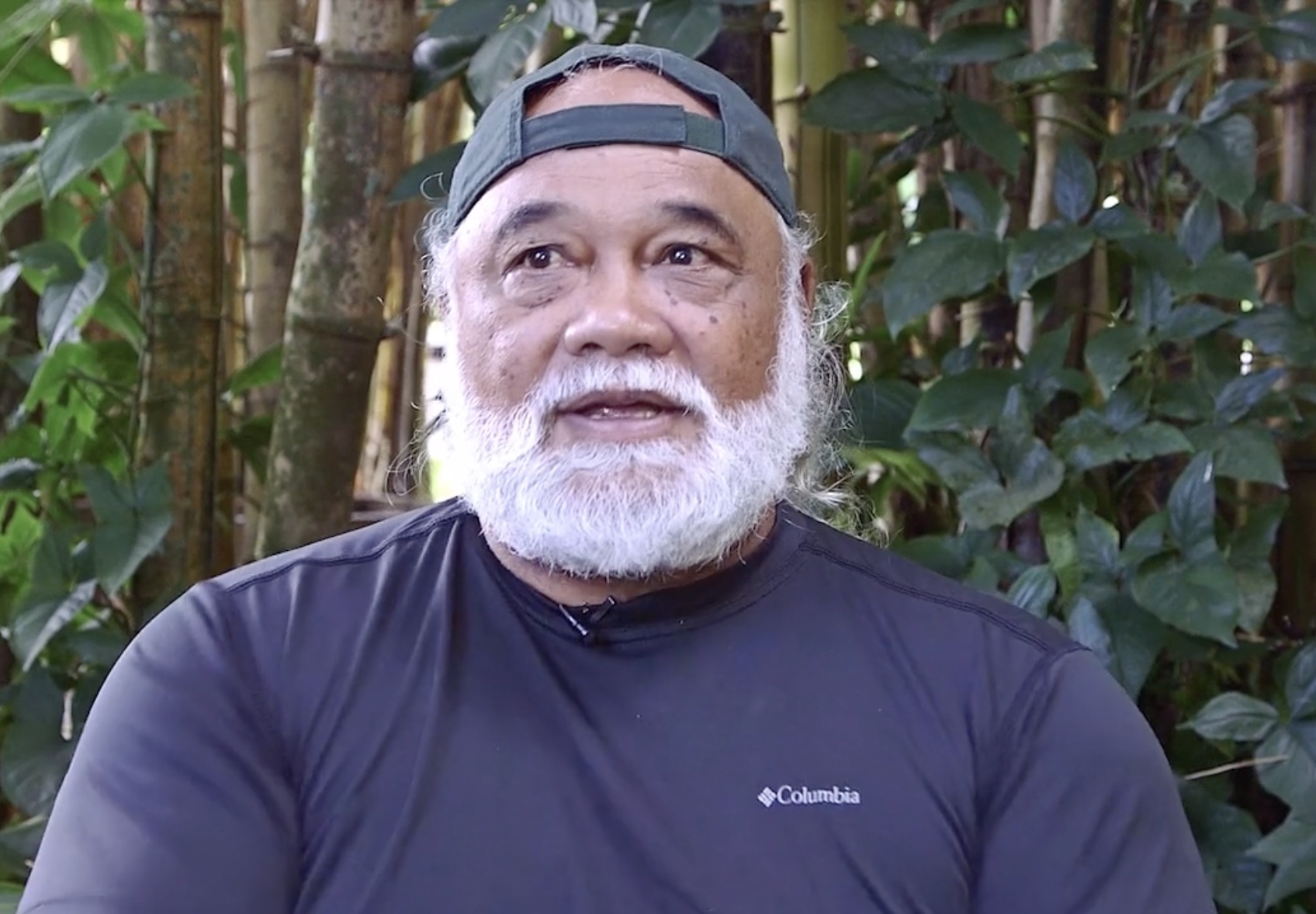A Conversation with Alika Atay: On the Spiritual Importance of the Land in Traditional Hawaiian Indigenous Farming
$9.00
One Week Rental
Originally recorded as by our friends at the Haiku Aina Permaculture Initiative (HAPI) on Maui, this is a one hour film with Alika Atay, who was President of the West Side Mauna Kahalawai Chapter of the Maui Farmers United Union.
Alika is a community leader, farmer, and mentor from a 10th generation Indigenous Hawaiian family. His relationship to the land is deeply spiritual and political in the sense that food sovereignty is at the heart of his concerns.
Prior to being annexed by the United States on July 7, 1898, the Sovereign Kingdom of Hawaii supported a population nearly equivalent to its present day population in an entirely sustainable manner, with zero imported foodstuffs. Ancestrally the islands were governed by chiefs whose territories descended from the top of the volcano on each island in pie-shaped wedges down to the shorelines. These watersheds, called Ahupua'as, contained each of the eco-system types on the island, from forest sections at higher elevation to the lowland cultivated areas. Since much of Hawaiian life is dependent on water, which was channeled to crops through both irrigation and rainfed methods, and also used for aquaculture, it was natural to organize land division by watersheds. It is also easier, in much of Hawaii, to travel up and down between a shore and the mountain than across watersheds. In this system, cooperation between farmers and fishermen led to exchange of foodstuffs up and down the mountain. The people at the coast traded fish up the mountain for taro, coconuts, breadfruit, banana, and sugarcane. The farmers in turn used fishbones, and fishguts to create fertilizer. The Indigenous Hawaiians understood the deep interconnectedness of nature, and worked to maintain spiritual and ecological balance (pono) on the land.
At present, Hawaii imports 97% of its food. If the container ships stop running, the islands will be out of food in three days.
Alika Atay
On the Spiritual Importance of the Land in Traditional Hawaiian Indigenous Farming
Within 5 minutes of purchase, you will receive log-in information from our servers, with directions for accessing the rental.
Rental will expire in one week from the time you rented.
This beautiful interview was originally recorded by our friends at the Haiku Aini Permaculture Initiative (HAPI) on Maui, Hawaii.


